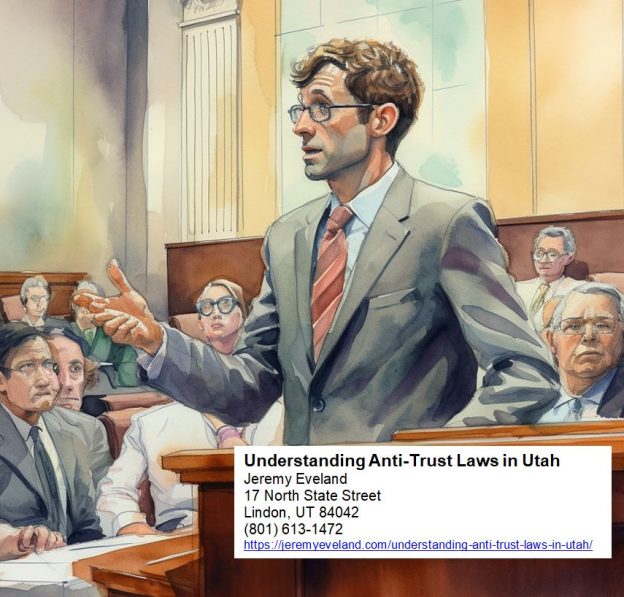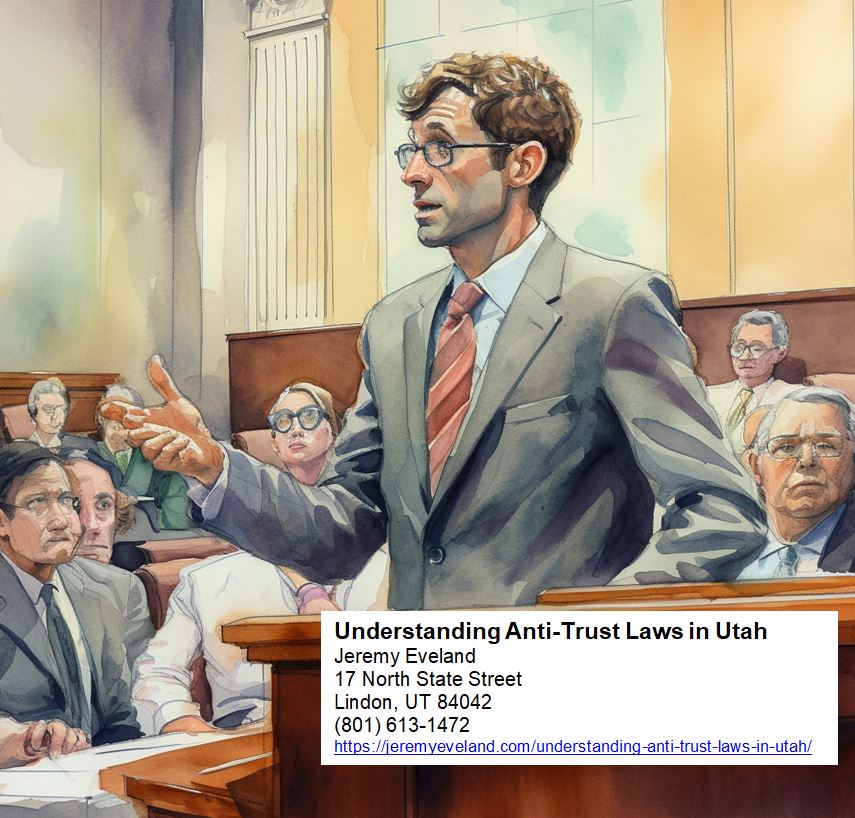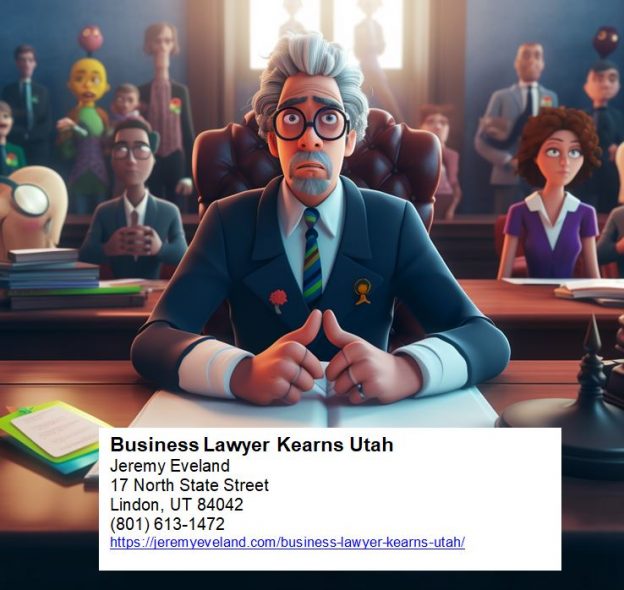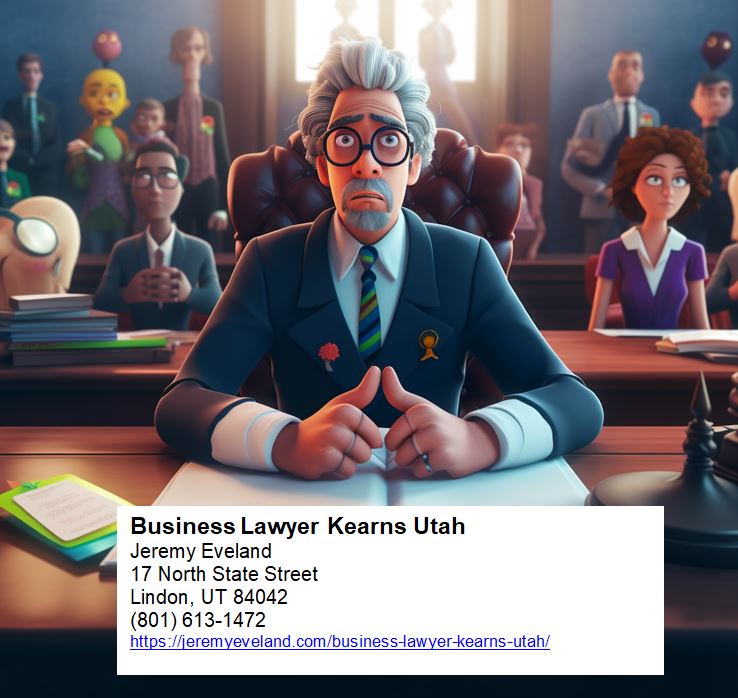Product Liability Laws In Utah
Did you know that in a recent year, more than 5% of all civil lawsuits filed in Utah were related to product liability claims? It's an eye-opening statistic that underscores the relevance of understanding Utah's product liability laws. Whether you're a consumer who has been injured by a faulty product or a manufacturer wanting to ensure compliance and safeguard against potential lawsuits, this knowledge is crucial. These laws dictate how responsibility for defective or dangerous products is assigned and what legal recourse consumers have.
In the state of Utah, several legal theories may be used for product liability claims including strict liability, which can hold manufacturers accountable even without proof of negligence. The burden of proof, though seemingly daunting, becomes easier to navigate once understood. And as we delve deeper into the responsibilities expected from manufacturers, distributors, and sellers in ensuring safety and quality standards are met consistently in Utah; we'll see that these aren't just business practices but moral obligations too. In essence, knowing your rights and responsibilities under these laws not only benefits you individually but also contributes to creating safer communities across our beautiful Beehive State.
Key Takeaways
- Product liability laws in Utah hold manufacturers and sellers accountable for selling dangerous products.
- Burden of proof in product liability cases in Utah requires demonstrating that a defective product caused harm.
- Consumers have rights protected under product liability laws in Utah, and regulations mandate that products meet safety standards before reaching consumers.
- Manufacturers, distributors, and sellers in Utah have responsibilities to create safe products, provide accurate information, and address issues promptly.
Legal Theories for Product Liability Claims in Utah
In Utah, when it comes to product liability claims, you can't judge a book by its cover; there are several legal theories that can be employed such as strict liability, negligence, and breach of warranty. Understanding these legal theories for product liability claims in Utah is essential if you've been injured by a defective or harmful product. The nuances of Utah's laws could significantly alter the outcome of your case. For instance, different liable parties may have different levels of legal liability depending on the nature of the claim and their role in the chain of commerce.
Under the theory of strict liability in Utah product liability cases, manufacturers or sellers can be held liable if they sold an unreasonably dangerous product which led to injury or damage. You don't need to prove that they were negligent; their involvement in bringing an unsafe product into commerce is sufficient for establishing their responsibility under this theory. This shows how seriously Utah takes consumer safety – regardless of whether or not there was intentional wrongdoing, allowing a harmful product into circulation carries consequences.
Negligence is another common ground for making a product liability claim. Under this theory, you must demonstrate that the party responsible failed to exercise reasonable care in designing or manufacturing the product leading to harm caused by its use. It's all about showing that prudent behavior wasn't adhered to during production and marketing process. If successfully proven, those at fault will face legal consequences under these robust Utah laws.
The third theory often used involves breach of warranty – essentially claiming that promises made about a product's safety were broken when it proved faulty causing harm or loss on your part. In other words, if what was sold doesn't match up with what was promised then those involved could find themselves dealing with serious repercussions from a disappointed consumer empowered by well-defined state regulations.Now having understood these three core theories—strict liability,negligence,and breach of warranty—let's delve deeper into each one starting with understanding strict liability within the framework of 'product liability laws in utah'.
Understanding Strict Liability in Product Liability Laws
Strict liability, you should know, is a key concept when it comes to understanding who's at fault in cases involving defective goods. In the realm of product liability laws in Utah, strict liability holds manufacturers and sellers accountable for any harm caused by their products, irrespective of how careful they were during the design or manufacturing process. This means if their product was faulty and caused damage or injury, they could be held liable under this law. A good product liability lawyer would tell you that strict liability makes it easier for consumers like you to seek compensation.
Now let's take a moment to explore exactly why strict liability is crucial:
- It gives you a sense of security: Knowing that companies are held accountable for their products allows you to trust what you buy.
- You're part of a community: We all share an implicit agreement with manufacturers that we'll only use safe and effective goods.
- Power dynamics shift: Strict liability empowers consumers like yourself over big corporations.
In Utah specifically, this law helps foster a marketplace where businesses prioritize consumer safety above all else. It encourages companies to maintain rigorous standards across all stages of production – from conception through distribution. The fear of being held strictly liable urges them to ensure their products are as safe as possible before they reach your hands.
When navigating through the complexities of product liability laws and strict liability in Utah, keep in mind that every case differs based on its unique circumstances. Consulting with an experienced product liability lawyer can help clarify these legal intricacies tailored to your specific situation. Remember, understanding how strict liability works within the framework of Utah's product liability laws forms an essential part of building your claim effectively.
This brings us closer towards our next area for discussion – comprehending the nuances associated with establishing 'burden of proof' within the context of Utah's product liability cases is equally significant in successfully maneuvering such complex matters.
Burden of Proof for Product Liability Cases in Utah
Just when you thought navigating the ins and outs of strict liability was a feat, it's time to tackle yet another crucial aspect – mastering the 'burden of proof' in these complex cases. In product liability cases in Utah, understanding who carries this burden is pivotal to effectively advocating for your rights. Essentially, under Utah's product liability laws, the injured party has the responsibility to demonstrate that a defective product caused their injury or harm.
The burden of proof in a product liability claim requires that you establish certain key elements. Firstly, you must prove that the product was indeed defective. This could be due to faulty design, manufacturing error or inadequate warnings. Secondly, it's necessary to show that this defect existed when it left the defendant's control and reached you without substantial alteration. Finally, evidence must be presented proving that this defective product directly caused your injury.
It's important to note though; meeting this burden doesn't have to mean an uphill battle on your own. Legal professionals well-versed in Utah state laws can guide you through every twist and turn of proving a successful claim – from gathering evidence about the defective nature of the product and its relationship with your injury to demonstrating how it breached reasonable safety expectations.
Now armed with an understanding of what 'burden of proof' entails within Utah's framework for handling claims involving defective products, we move forward on our journey into these legal intricacies by exploring ways we as consumers can ensure safety and quality from products available in our beloved Beehive State.
Ensuring Product Safety and Quality in Utah
You don't want your trust in manufacturers to be a leap of faith, do you? Let's delve into how you can ensure the safety and quality of items available right here in the Beehive State. You as consumers have rights protected under product liability laws, creating an avenue for you to pursue legal recourse if a product is found to cause harm due to a design defect or manufacturing error. From Salt Lake City retailers to local Utah producers, these regulations mandate that products meet certain safety standards before reaching your hands.
There are key steps you can take towards ensuring product safety:
- Be proactive in learning about the products:
- Research on manufacturer's reputation.
- Check for any past product liability cases against them.
- Understand the different types of defects:
- A design defect occurs when there is an inherent flaw in the design that makes it inherently unsafe.
- A manufacturing defect occurs during production where something goes wrong causing the final product to diverge from its intended design.
Asking questions and seeking knowledge about what you're buying isn't just smart shopping; it also gives you a sense of empowerment and belonging. This way, not only do you protect yourself from potential harm caused by defective products, but also contribute towards holding manufacturers accountable for maintaining high standards. Remember, being aware of your rights concerning product safety doesn't end at knowing what constitutes a defect; getting familiar with specific Utah state laws regarding these matters will equip you with valuable tools should any issues arise.
While we may hope never to encounter such situations involving manufacturing or design defects, educating ourselves prepares us for possible scenarios. When armed with this information, we become more than just consumers—we become active participants ensuring our own safety and pushing industries toward better practices. Now let's turn our focus towards understanding more about the responsibilities that manufacturers, distributors, and sellers bear within Utah's borders when it comes to their offered products.
Responsibilities of Manufacturers, Distributors, and Sellers in Utah
In ensuring your safety and satisfaction, manufacturers, distributors, and sellers within this great state have a multitude of responsibilities to uphold: they're tasked with creating items that are both safe for use and meet quality standards; they've got to provide accurate information about the goods; and it's on them to promptly address any issues or concerns you might encounter. Under product liability laws in Utah, these entities are expected not only to deliver top-notch products but also bear accountability should their merchandise present a dangerous product risk due to manufacturing defects or other causes.
When it comes down to the nitty-gritty, each party involved in bringing a product to your hands plays a critical role. Let's delve into some specifics using our handy table:
| Responsible Party | Responsibility | Potential Consequence |
|---|---|---|
| Manufacturers | Avoidance of manufacturing defects by implementing stringent quality control measures. | Held liable under Utah law if defective products result in harm. |
| Distributors | Prompt distribution without causing damage or altering the product's condition. | May be held accountable for distributing products in defective condition. |
| Sellers | Accurate representation of product details and warnings regarding potential risks. | Could face legal consequences for failure to warn consumers about possible dangers of their products. |
Remember that these responsibilities aren't just there for show – they aim at fostering an environment where you can feel confident in your purchases. In essence, the actions taken by manufacturers, distributors, and sellers help ensure that you won't end up with a defective item that poses unnecessary risks.
So next time when you're shopping around remember: those who play a part in getting products onto shelves aren't just selling items—they're providing assurances of safety and quality under strict guidelines enforced by Utah state laws. It is through these shared responsibilities we create safer communities together because everyone deserves peace of mind when buying something new—be it as simple as groceries or as significant as car purchases!
Frequently Asked Questions
What are the legal penalties for violating product liability laws in Utah?
If you violate product liability laws in Utah, you're likely to face severe legal penalties. These consequences can include substantial monetary fines or damages that will be awarded to the plaintiff if they win their case against you. Additionally, your company's reputation could suffer significantly, potentially leading to lost business and a decrease in market share. In some extreme cases, individuals within your company might even face criminal charges if the violation is deemed intentional or particularly negligent. It's crucial for you to adhere strictly to these laws not only for the financial stability of your business but also for the safety and satisfaction of your customers, as it fosters a sense of belonging among them knowing they are valued and protected.
How does Utah's product liability laws compare to those in other states?
You might be wondering how Utah's product liability laws stack up against those in other states. In terms of the overall framework, they're fairly similar – all states have laws in place to protect consumers from dangerous products. However, the specifics can vary from state to state. For instance, unlike some states that follow a pure comparative negligence rule, Utah follows a modified version which places more responsibility on the consumer if they are 50% or more at fault for their injury. What this means for you is that if you're involved in a product liability case in Utah, and it's found that you were half or more responsible for your own harm due to misuse of the product or failure to heed warnings, you could be barred from recovering damages. It's an aspect of Utah law that asks us all to take greater responsibility when using products and adds another layer of complexity when navigating these types of legal issues.
Are there any recent changes or updates to the product liability laws in Utah?
You're keen to stay informed and that's commendable. As of now, there haven't been any recent updates or changes to the product liability laws in Utah. Rest assured, you're right on track with your understanding of the current legislation. Just as a refresher, these laws are designed to protect consumers like you from defective products and hold manufacturers responsible for any harm their products may cause. Remember, staying informed and connected with such legal matters not only protects your rights but also contributes towards a safer community for us all.
How can consumers report a product that they believe violates product liability laws in Utah?
You're at home, unwrapping a new product you've been eagerly waiting for. Soon after using it, though, something doesn't feel right. You start to suspect that the product might be in violation of Utah's product liability laws. Here's what you can do – first and foremost, document everything. This includes any injuries or damage caused by the product as well as all interactions with the company. Next, contact an experienced attorney who knows Utah state laws like the back of their hand; they'll guide you through your options and potential next steps. Finally, report it to both the Consumer Product Safety Commission and the Utah Division of Consumer Protection. Your actions not only help protect yourself but also contribute to a safer community by ensuring such products are held accountable under law.
What recourse do consumers have if they are injured by a product in Utah?
If you're injured by a product in Utah, rest assured that the law is on your side. You can file a product liability lawsuit against the manufacturer, distributor or retailer of the faulty product. This legal action seeks compensation for medical expenses, lost wages, pain and suffering as well as any other damages you've incurred due to the injury. Remember, it's essential to act swiftly; Utah has a two-year statute of limitations from the date of injury for filing such lawsuits. To navigate this process effectively and assertively, consider reaching out to an experienced attorney who specializes in product liability claims. Taking this step not only ensures your rights are protected but also helps foster safer consumer practices across our beloved Beehive State.
Areas We Serve
We serve individuals and businesses in the following locations:
Salt Lake City Utah
West Valley City Utah
Provo Utah
West Jordan Utah
Orem Utah
Sandy Utah
Ogden Utah
St. George Utah
Layton Utah
South Jordan Utah
Lehi Utah
Millcreek Utah
Taylorsville Utah
Logan Utah
Murray Utah
Draper Utah
Bountiful Utah
Riverton Utah
Herriman Utah
Spanish Fork Utah
Roy Utah
Pleasant Grove Utah
Kearns Utah
Tooele Utah
Cottonwood Heights Utah
Midvale Utah
Springville Utah
Eagle Mountain Utah
Cedar City Utah
Kaysville Utah
Clearfield Utah
Holladay Utah
American Fork Utah
Syracuse Utah
Saratoga Springs Utah
Magna Utah
Washington Utah
South Salt Lake Utah
Farmington Utah
Clinton Utah
North Salt Lake Utah
Payson Utah
North Ogden Utah
Brigham City Utah
Highland Utah
Centerville Utah
Hurricane Utah
South Ogden Utah
Heber Utah
West Haven Utah
Bluffdale Utah
Santaquin Utah
Smithfield Utah
Woods Cross Utah
Grantsville Utah
Lindon Utah
North Logan Utah
West Point Utah
Vernal Utah
Alpine Utah
Cedar Hills Utah
Pleasant View Utah
Mapleton Utah
Stansbury Par Utah
Washington Terrace Utah
Riverdale Utah
Hooper Utah
Tremonton Utah
Ivins Utah
Park City Utah
Price Utah
Hyrum Utah
Summit Park Utah
Salem Utah
Richfield Utah
Santa Clara Utah
Providence Utah
South Weber Utah
Vineyard Utah
Ephraim Utah
Roosevelt Utah
Farr West Utah
Plain City Utah
Nibley Utah
Enoch Utah
Harrisville Utah
Snyderville Utah
Fruit Heights Utah
Nephi Utah
White City Utah
West Bountiful Utah
Sunset Utah
Moab Utah
Midway Utah
Perry Utah
Kanab Utah
Hyde Park Utah
Silver Summit Utah
La Verkin Utah
Morgan Utah
Product Liability Consultation
When you need help with Products Liability, call Jeremy D. Eveland, MBA, JD (801) 613-1472 for a consultation.
Jeremy Eveland
17 North State Street
Lindon UT 84042
(801) 613-1472
Related Posts
Comprehensive Guide To Hiring A Business Lawyer
Business Lawyer Springville Utah
Mergers and Acquisitions from a Legal Perspective
Business Lawyer Eagle Mountain Utah
Understanding Anti-Trust Laws in Utah
Business Lawyer Cedar City Utah
Understanding LLC Laws in Utah
Business Lawyer Kaysville Utah
Understanding Utah’s Non-Profit Laws
Business Lawyer Clearfield Utah
Business Lawyer American Fork Utah
How To Handle Customer Complaints In Utah
Business Lawyer Saratoga Springs Utah
The Role of Business Law in Protecting Minority Shareholder Rights
What Are The 4 Different Types of Business Law?
Business Lawyer Washington Utah
Business Lawyer South Salt Lake Utah
Legal Requirements for Utah Technology Startups
Business Lawyer Farmington Utah
Due Diligence For Buying A Utah Business
Understanding Utah’s Labor Laws






